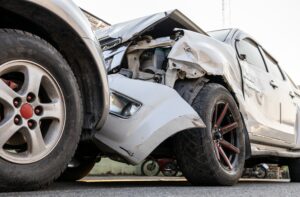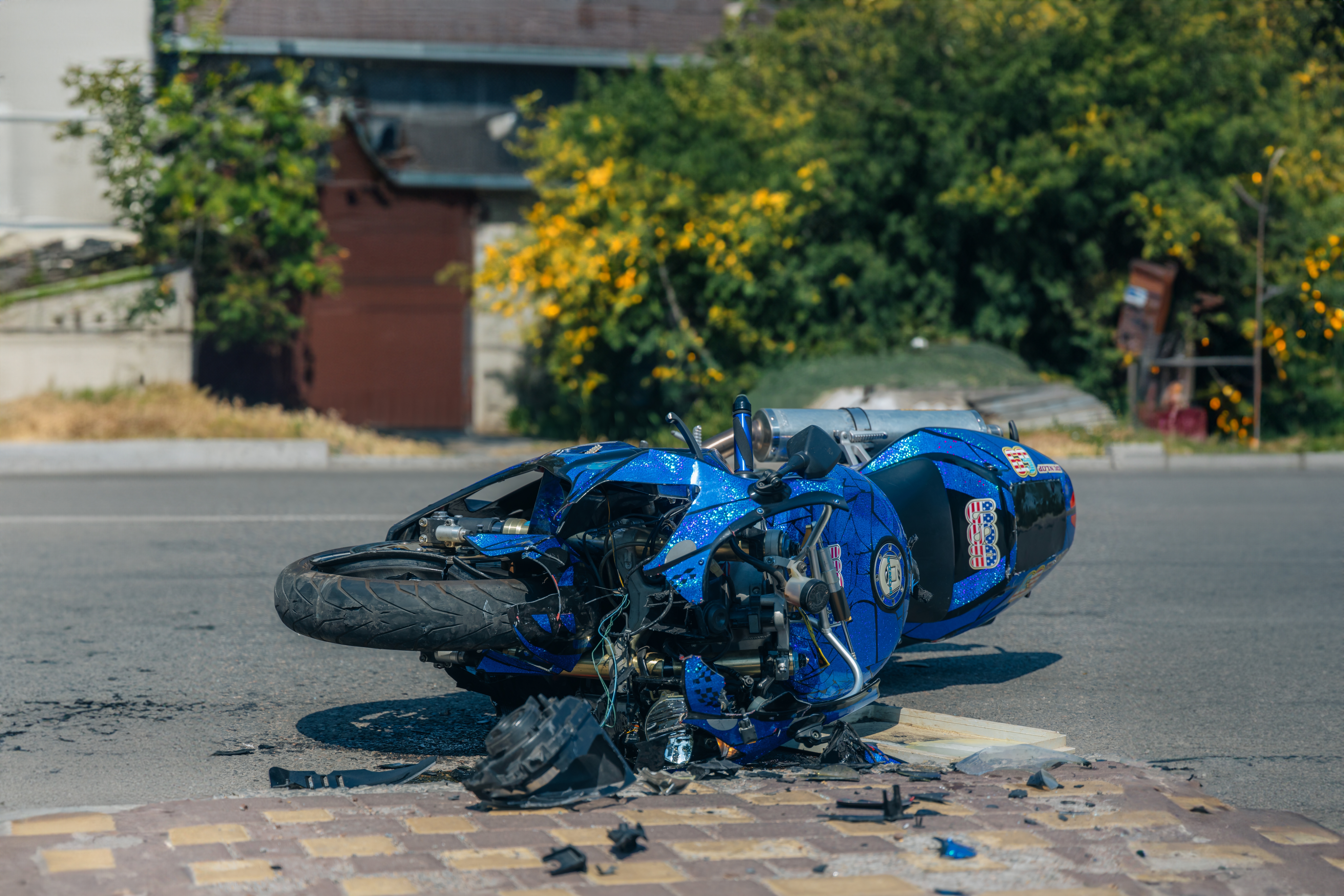Following a motor vehicle crash in West Virginia, a police report can be an extremely helpful piece of evidence. Police reports typically contain a diagram of the accident scene, along with a narrative description of how the accident happened. It may also indicate who was at fault for the accident and whether or not the responding police officer issued the at-fault driver a citation.
There are certain steps that you should take to obtain a copy of the police report. An experienced motor vehicle accident attorney in West Virginia can gather the evidence necessary to prove your case – including the police report – and handle every step of the legal process for you. Your attorney will work hard to maximize the compensation you receive, either through a favorable settlement offer or litigation result in court.
Types of Motor Vehicle Accidents that Occur in West Virginia Due to Others’ Negligence
In West Virginia, motor vehicle accidents resulting from other drivers’ negligence can vary widely, each posing different risks and consequences. These accidents often occur due to driver error or poor decision-making. Some of the most common types include:

- Rear-End Collisions – This type of accident happens when one vehicle crashes into the back of another. It frequently results from tailgating, where a driver follows too closely behind another vehicle, leading to insufficient reaction time. Distracted driving, such as texting or using a phone, can also be a factor, as it reduces a driver’s ability to notice sudden stops or slowdowns.
- Intersection Accidents – Collisions at intersections are common in West Virginia and can result from drivers running red lights or failing to yield the right-of-way. These accidents often involve side-impact crashes, where one vehicle strikes another vehicle on the side. Misjudgments about the speed or distance of approaching vehicles can contribute to these dangerous scenarios.
- Head-On Collisions – These severe accidents occur when the fronts of two vehicles strike one another. They are often the result of a driver crossing into oncoming traffic lanes, due to drowsy driving, impaired driving, or severe distractions. Head-on collisions tend to be very serious due to the high impact force.
- T-bone Accidents – T-bone or side-impact collisions occur when one vehicle crashes into the side of another, forming a “T” shape. These accidents commonly result from one driver failing to obey traffic signals or stop signs. They often happen at traffic intersections – or when one driver makes an improper turn.
- Rollovers – Rollover accidents happen when a vehicle tips onto its side or roof. They can result from sharp turns, speeding, or collisions that cause the vehicle to lose balance.
- Hit-and-Run Accidents – In some cases, drivers involved in accidents may flee the scene. These hit-and-run incidents can complicate legal proceedings and investigation efforts. They often occur when the negligent driver is trying to avoid responsibility or legal repercussions.
Common Injuries in a West Virginia Motor Vehicle Crash
Victims of motor vehicle crashes in West Virginia can suffer a range of injuries, varying from minor to severe. Some of the most common injuries that victims may suffer include:
- Whiplash – This is one of the most common injuries in rear-end collisions. Whiplash occurs when the head is suddenly jolted backward and forward, straining the neck muscles and ligaments. Symptoms may include neck pain, stiffness, and headaches, and while it often heals with time, some victims may experience chronic discomfort.
- Concussions – A concussion is a type of traumatic brain injury resulting from a sudden blow to the head or a violent shaking of the head and body. In vehicle crashes, the head may hit the steering wheel, window, or dashboard. Symptoms include confusion, dizziness, nausea, and temporary loss of consciousness. Though most people recover fully, repeated concussions can lead to long-term issues.
- Fractures – Broken bones are common in motor vehicle accidents due to the force of impact. Victims may suffer from fractures in the arms, legs, or ribs. These injuries can be painful and often require immobilization with casts or surgery, along with a significant recovery period.
- Spinal Cord Injuries – Damage to the spine, including herniated discs or spinal cord injuries, can occur in serious motor vehicle crashes. Such injuries can result in chronic pain, loss of mobility, or even paralysis. Treatment often involves surgery, physical therapy, and long-term management.
- Internal Injuries – Vehicle crashes can also cause internal injuries such as damage to organs (e.g., liver, spleen) or internal bleeding. These injuries may not be immediately apparent but can be life-threatening if not treated promptly. Symptoms may include abdominal pain and swelling.
- Soft Tissue Injuries – These include injuries to muscles, tendons, and ligaments. Common soft tissue injuries include bruises, sprains, and strains. While often less severe than fractures, they can be painful and may require physical therapy for full recovery.
Beyond physical injuries, motor vehicle crashes can also lead to emotional and psychological issues, such as post-traumatic stress disorder (PTSD), anxiety, and depression. The trauma of an accident can affect mental health, requiring counseling and support.
Obtaining a Copy of the Police Report After an Accident in West Virginia
After a motor vehicle accident in West Virginia, obtaining a copy of the police report and other evidence is crucial for insurance claims and legal proceedings. Here are the steps to follow to secure this information:

- Gather Basic Information – Before requesting a police report, make sure you have essential details about the accident. This includes the date, time, and location of the crash, as well as the names of involved parties and the responding police department. If you have the report number or the names of officers involved, that will be helpful too.
- Contact the Police Department – Reach out to the police department that handled your accident. This is usually the local police or county sheriff’s office. You can find their contact information on the department’s website or by calling their non-emergency number. Explain that you need a copy of the accident report and provide them with the information you’ve gathered.
- Request the Report – Police reports can typically be requested in person, by mail, or online. Visit the police department’s records division or website to see if they offer an online request system. If not, you may need to submit a written request by mail or deliver it in person. Include your contact information and details about the accident in your request.
- Request Witness Statements – If there were witnesses to the accident, their statements can be valuable. Request their contact information from the police department if they provided statements to the officers.
- Review the Report and Evidence – Once you receive the police report, review it carefully. Ensure that all information is accurate and complete.
- Consult with an Experienced Motor Vehicle Accident Attorney – They can guide you through the process and help you use the recovered police report effectively.
Following these steps can help you efficiently obtain the necessary documents and evidence for your case.
Using the Police Report and Other Evidence to Prove the Legal Elements of a West Virginia Motor Vehicle Accident Case
In a West Virginia motor vehicle accident claim, using the police report and other evidence is essential to establish the legal elements required for a successful case. Here’s how to effectively use these documents to support your claim:
- Establishing Fault – The police report is a critical document for proving fault in an accident. It typically includes details such as the responding officers’ observations, witness statements, and the officer’s conclusions about who was responsible for the accident. The report may also indicate any traffic citations issued or the results of field sobriety tests if alcohol impairment was suspected. By demonstrating that the other driver was at fault, whether through speeding, running a red light, or driving recklessly, you can establish a key element of your claim: negligence.
- Proving Damages – To support your claim for damages, you need to show the extent of your injuries and property damage. The police report provides a record of the accident scene, which can be used alongside photographs of vehicle damage and injuries. Medical records, including diagnoses, treatment plans, and bills, help to quantify the physical and financial effects of the accident. By combining these elements, you can effectively demonstrate the scope of your losses and justify the compensation you are seeking.
- Demonstrating Causation – Causation refers to proving that the accident directly caused your injuries and damages. The police report helps establish the circumstances of the accident, such as the speed of the vehicles involved and the force of the collision. Evidence like medical records showing the timeline of your injuries and how they relate to the accident supports this link. Additionally, witness statements or expert testimony can further clarify how the accident caused your injuries, reinforcing the connection between the crash and your damages.
In addition to the police report, other evidence, such as traffic camera footage, witness testimony, and expert analyses, can strengthen your case. Traffic camera footage can show how the accident occurred and verify details from the police report. Witness statements can corroborate your version of events and provide additional insights into the accident. Expert analyses, such as accident reconstruction reports, can offer professional opinions on how the accident happened and support your claims.
A skilled West Virginia motor vehicle accident attorney can gather the necessary documentation and use it to prove the legal elements of your claim or lawsuit.
Recovering Compensation for Injuries in a West Virginia Motor Vehicle Accident Case

Jeff Robinette, West Virginia Motor Vehicle Accident Lawyer
If you’ve suffered an injury in a motor vehicle crash in West Virginia, you may be eligible to recover several forms of compensation for your injuries and losses. Here’s a breakdown of the different categories of damages you may pursue:
- Medical Expenses – This compensation covers the costs of medical care resulting from the accident. It includes expenses for emergency room visits, hospital stays, surgeries, doctor’s appointments, medications, physical therapy, and any future medical treatments related to your injuries. Keeping detailed records and receipts for all medical expenses is crucial for substantiating your claim.
- Lost income – If your injuries prevent you from working, you can seek compensation for the income you’ve lost. This includes earnings, salaries, or other forms of earnings that you were unable to earn due to your injuries. You may also claim loss of future earnings if your injuries affect your ability to work long-term or permanently.
- Pain and Suffering – Pain and suffering damages compensate for the physical pain and emotional distress that result from the accident. This includes the suffering endured from the injuries themselves, as well as the psychological effects such as anxiety, depression, or loss of life enjoyment. Quantifying pain and suffering can be challenging, but it is an important part of seeking fair compensation for your losses.
- Property Damage – This covers the cost of repairing or replacing your vehicle and any personal property damaged in the accident. The amount you can claim depends on the extent of the damage and the value of the property. You’ll need to provide repair estimates or replacement costs to support this part of your claim.
- Loss of Consortium – If your injuries have affected your relationship with your spouse or family members, they may be eligible for loss of consortium damages. This form of compensation addresses the effect on marital relations, companionship, and support.
- Permanent Disability or Disfigurement – If your injuries result in long-term disability or permanent disfigurement, you may be entitled to additional compensation. This considers the long-term effects on your quality of life and ability to perform daily activities.
Each form of compensation aims to address different aspects of the financial and personal effects of your accident. An experienced motor vehicle accident attorney in West Virginia can help you understand and pursue all potential damages, ensuring that you receive fair compensation for your injuries and losses.
Call an Experienced West Virginia Motor Vehicle Accident Lawyer Today
If you sustained injuries in a recent West Virginia motor vehicle crash, it’s essential that you have an experienced West Virginia personal injury attorney advocating for you as quickly as possible. Your lawyer can obtain the evidence necessary to prove your case, represent you during all legal proceedings, and fight for the compensation you deserve.




